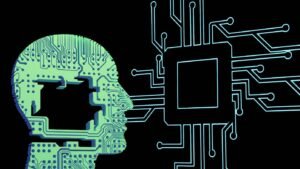Artificial Intelligence Origin
Artificial Intelligence (AI) has become an integral part of our daily lives, from voice assistants like Siri or Alexa
to autonomous vehicles and recommendation systems. But have you ever wondered about the origin of AI and how this remarkable technology came into existence?
Key Takeaways:
- Artificial Intelligence (AI) is a rapidly advancing technology that simulates human intelligence in machines.
- The concept of AI dates back to ancient civilizations, where ancient Greeks and Egyptians had mythical tales of
artificial beings. - Modern AI research began in the 1950s and has evolved significantly through different waves of AI development.
- The field has seen significant advancements in areas such as machine learning, deep learning, and natural language
processing. - AI is now used in various industries, including healthcare, finance, transportation, and entertainment.
**Artificial Intelligence**, as we know it today, has a rich history that extends far beyond its recent popularity. The concept of artificially-created beings or machines with human-like qualities can be traced back to ancient civilizations. Both ancient Greeks and Egyptians had mythical legends and stories of **robots** or automated human-like creatures. However, the development of AI as a scientific field didn’t begin until the mid-20th century.
The origins of modern AI can be traced back to a 1956 conference at Dartmouth College, where researchers from different fields came together to explore the possibility of creating intelligence in machines. This event marked the beginning of AI as a scientific discipline and sparked the interest of scientists and computer programmers worldwide. Since then, the field has undergone several periods of intense research and development, known as “AI winters” and subsequent “AI summers”, leading to significant advancements and breakthroughs.
The Evolutionary Waves of AI
**AI research** has evolved through three distinct waves:
- The first wave, also known as “Symbolic AI,” focused on rule-based systems and logical reasoning. It aimed to create machines capable of mimicking human decision-making processes. This approach had limitations in handling real-world uncertainties and complex data.
- The second wave, known as “Machine Learning,” emerged in the late 1980s. It shifted the focus towards statistical methods and algorithms that allow machines to learn patterns and make predictions from data. This wave contributed to significant advancements in areas such as computer vision and speech recognition.
- The current wave is the “Deep Learning” era, which began around the early 2010s. Deep learning models, inspired by the structure and function of the human brain, can process vast amounts of data to uncover complex patterns and phenomena. This wave has led to breakthroughs in areas such as natural language processing, image recognition, and autonomous driving.
The Impact of AI in Different Industries
AI has revolutionized various industries, bringing disruptive changes and new possibilities. Here are some examples:
| Industry | AI Applications |
|---|---|
| Healthcare | * AI-powered diagnosis and treatment assistance systems. |
| Finance | * Fraud detection and prevention algorithms that analyze large volumes of financial data. |
| Transportation | * Self-driving cars and optimization of traffic flow. |
| Entertainment | * Personalized movie and music recommendations based on user preferences. |
AI is expected to continue shaping the future by enhancing efficiency, improving decision-making, and enabling new applications that were once unimaginable.
Conclusion
The origin of artificial intelligence can be traced back to ancient myths and legends of artificial beings. However, modern AI research began in the mid-20th century and has experienced significant advancements through different waves of development. AI has now become a transformative technology, revolutionizing industries and reshaping the way we live, work, and interact with machines. As AI continues to evolve, we can expect even more fascinating breakthroughs and applications in the years to come.

Common Misconceptions
Artificial Intelligence (AI) is a Human Concept
One common misconception about AI is that it is a concept developed by humans. While humans may have created the technology and continue to advance it, AI itself is not a human concept. AI is a field of computer science that aims to create programs and systems capable of performing tasks that would typically require human intelligence.
- AI is not limited to perform only tasks that humans can do.
- AI can analyze vast amounts of data at incredible speeds, far surpassing human capabilities.
- AI algorithms are designed to learn and improve over time, relying on patterns and inputs rather than human logic.
AI is a Recent Invention
Another misconception surrounding AI is that it is a recent invention. In reality, the concept of AI can be traced back to ancient times, with some of the earliest philosophical ideas on thinking machines dating back to ancient Greece. The modern field of AI itself emerged in the 1950s and has been evolving ever since.
- Early forms of AI can be seen in ancient mythology, such as Hephaestus’ Automatons in Greek mythology.
- The famous Turing Test, a benchmark for AI, was proposed by Alan Turing in 1950.
- The 1956 Dartmouth conference is often considered the birth of AI as a formal field of study.
AI Will Replace Humans
There is a common fear that AI will eventually replace humans in the workforce, leading to widespread unemployment. While AI has the potential to automate certain tasks and jobs, it is unlikely to entirely replace human workers. AI is better suited for repetitive or data-driven tasks, but humans bring unique qualities such as creativity, emotional intelligence, and critical thinking.
- AI can enhance productivity and efficiency in various industries, freeing up humans to focus on more complex and creative work.
- Humans have the ability to adapt and learn new skills, making them valuable in the face of AI advancements.
- The collaboration of humans and AI can lead to more innovative and effective solutions.
AI is Superintelligent
There is a misconception that AI is superintelligent and possesses human-like intelligence. While AI algorithms can be highly sophisticated and capable of performing complex tasks, they lack the understanding and consciousness that define human intelligence. AI is built upon statistical models and algorithms, operating based on predefined rules and patterns.
- AI lacks common sense reasoning that comes naturally to humans.
- AI systems can make mistakes if they encounter situations outside their training data or predefined rules.
- AI is dependent on accurate data and the quality of its training to perform effectively.
AI is Dangerous and Will Take Over the World
Many people associate AI with catastrophic scenarios portrayed in popular culture, where machines become sentient and take over the world. This misconception stems from a misunderstanding of AI’s current capabilities. While AI can have negative implications if misused, the development of Artificial General Intelligence (AGI), which would possess human-level intelligence, remains a distant possibility.
- AI systems are designed with specific purposes and limitations.
- Responsible development and ethical considerations are crucial to avoid potential harmful consequences.
- AI is a tool, and its use and impact depend on how humans harness its power.

The Birth of Artificial Intelligence
During the summer of 1956, a group of tenacious scientists and mathematicians gathered at Dartmouth College to discuss a new field of study: artificial intelligence. Little did they know, this meeting would mark the birth of a technology that would revolutionize various sectors of society. The following tables showcase significant milestones and breakthroughs in the history of artificial intelligence.
1. The Turing Test
Inspired by the work of mathematician and codebreaker Alan Turing, the Turing Test was proposed in 1950 as a means of testing a machine’s ability to exhibit intelligent behavior indistinguishable from that of a human.
| Year | Event |
|---|---|
| 1950 | Alan Turing proposes the Turing Test |
| 1956 | First implementation of the Turing Test takes place at Dartmouth College |
2. Rule-Based Expert Systems
One of the early AI approaches was the development of rule-based expert systems. These systems utilized sets of predefined rules and logical reasoning to solve complex problems.
| Year | Event |
|---|---|
| 1965 | DENDRAL, the first expert system, is designed to analyze complex chemical compounds |
| 1980 | XCON, an expert system developed by Digital Equipment Corporation, helps configure computer systems |
3. Machine Learning
Machine learning algorithms enable systems to learn from data and improve their performance over time. Here are some notable milestones in machine learning.
| Year | Event |
|---|---|
| 1957 | Frank Rosenblatt develops the Perceptron, a simple algorithm for pattern recognition |
| 1997 | IBM’s Deep Blue defeats the world chess champion Garry Kasparov |
4. Natural Language Processing
Natural language processing focuses on enabling computers to understand, interpret, and generate human language. The advancements in this field have led to numerous applications, such as voice assistants and language translation.
| Year | Event |
|---|---|
| 1956 | Allen Newell and Herbert A. Simon develop the Logic Theorist, the first computer program capable of proving mathematical theorems |
| 1997 | IBM’s Deep Blue wins a chess game against the world champion Garry Kasparov |
5. Computer Vision
Computer vision aims to grant machines the ability to interpret and understand visual information from images or videos. It has made remarkable progress in object recognition and image processing.
| Year | Event |
|---|---|
| 2001 | Development of the Viola-Jones face detection framework |
| 2012 | Google’s DeepMind develops a system that recognizes cats from YouTube videos with no prior knowledge of cats |
6. Neural Networks
Neural networks, inspired by the structure of the human brain, have become crucial in areas such as image recognition, natural language processing, and autonomous vehicles.
| Year | Event |
|---|---|
| 1943 | McCulloch and Pitts introduce the concept of artificial neurons |
| 2014 | Google’s DeepMind develops AlphaGo, an AI program that beats a professional human Go player |
7. Robotics and AI
The integration of artificial intelligence with robotics has led to significant advancements in autonomous machines and robotic systems capable of performing complex tasks.
| Year | Event |
|---|---|
| 1961 | Unimate, the first industrial robot, is installed at the General Motors plant |
| 2000 | ASIMO, Honda’s humanoid robot, learns to walk on uneven surfaces and climb stairs |
8. AI in Healthcare
Artificial intelligence has found promising applications within the healthcare industry, ranging from diagnosing diseases to drug development and personalized medicine.
| Year | Event |
|---|---|
| 2012 | IBM’s Watson defeats human participants on the game show Jeopardy! |
| 2019 | AI algorithms outperform radiologists in breast cancer detection studies |
9. AI Ethics and Regulation
The growth and impact of artificial intelligence have raised concerns about ethical considerations and the need for regulations to govern its development and deployment.
| Year | Event |
|---|---|
| 2016 | The European Union adopts the General Data Protection Regulation (GDPR) |
| 2020 | The White House releases the “Guidance for Regulation of Artificial Intelligence Applications” document |
10. Future Prospects
The future of artificial intelligence holds endless possibilities, from advancements in machine learning to the integration of AI with other emerging technologies like blockchain and quantum computing.
| Year | Prediction |
|---|---|
| 2030 | Autonomous vehicles become a common mode of transportation in major cities |
| 2045 | The concept of singularity, where AI surpasses human intelligence, becomes a reality |
Conclusion
Artificial intelligence has come a long way since its inception at Dartmouth College in 1956. The field has witnessed groundbreaking achievements, from the development of rule-based expert systems to the rise of machine learning and neural networks. Advancements in natural language processing, computer vision, and robotics have further expanded AI’s applications in various industries. However, as AI continues to evolve, concerns regarding ethics and regulations have gained prominence. Regardless, the future of artificial intelligence appears bright, with new possibilities waiting to be explored and harnessed for the betterment of society.




